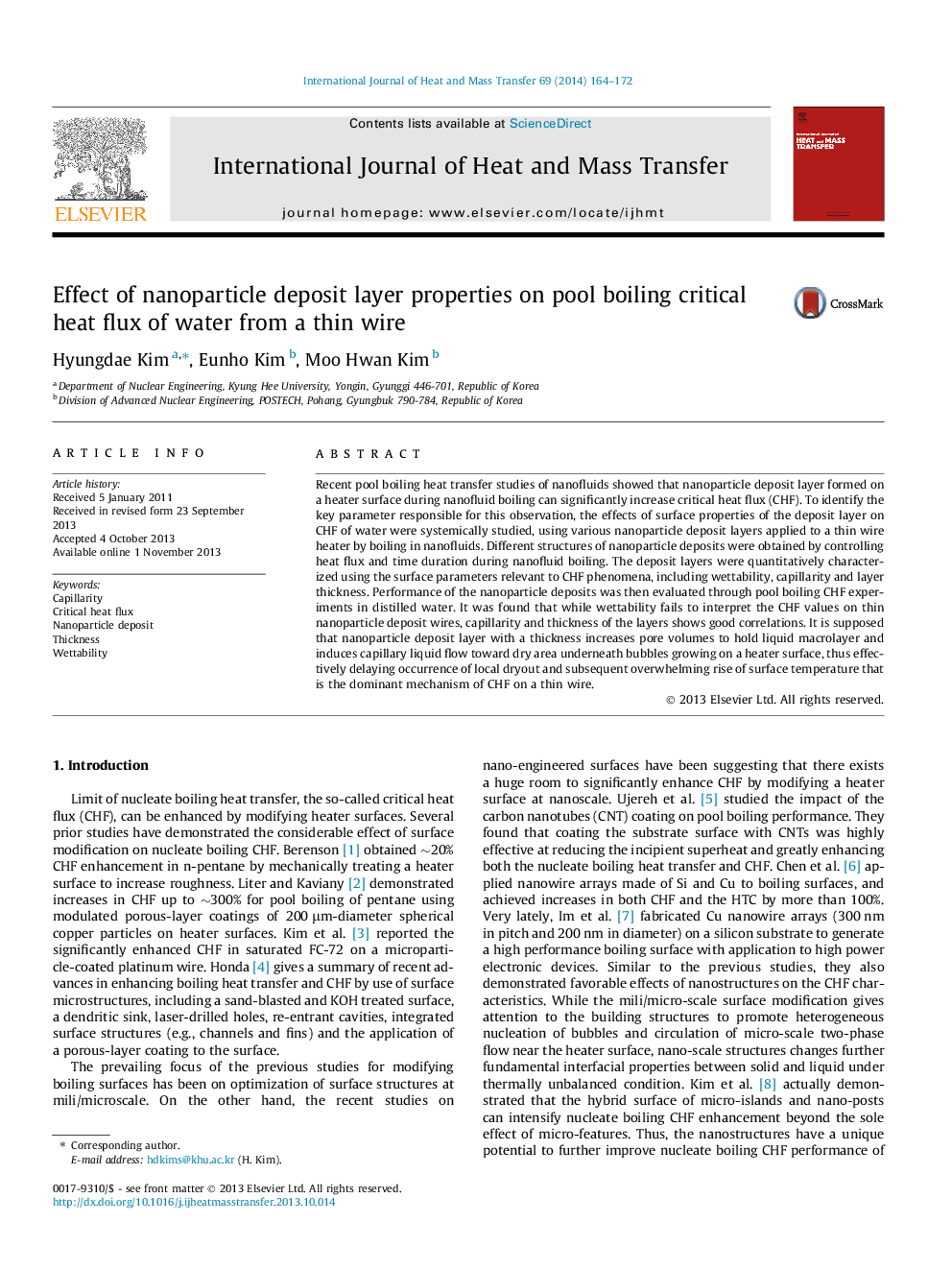| کد مقاله | کد نشریه | سال انتشار | مقاله انگلیسی | نسخه تمام متن |
|---|---|---|---|---|
| 658104 | 1458073 | 2014 | 9 صفحه PDF | دانلود رایگان |
Recent pool boiling heat transfer studies of nanofluids showed that nanoparticle deposit layer formed on a heater surface during nanofluid boiling can significantly increase critical heat flux (CHF). To identify the key parameter responsible for this observation, the effects of surface properties of the deposit layer on CHF of water were systemically studied, using various nanoparticle deposit layers applied to a thin wire heater by boiling in nanofluids. Different structures of nanoparticle deposits were obtained by controlling heat flux and time duration during nanofluid boiling. The deposit layers were quantitatively characterized using the surface parameters relevant to CHF phenomena, including wettability, capillarity and layer thickness. Performance of the nanoparticle deposits was then evaluated through pool boiling CHF experiments in distilled water. It was found that while wettability fails to interpret the CHF values on thin nanoparticle deposit wires, capillarity and thickness of the layers shows good correlations. It is supposed that nanoparticle deposit layer with a thickness increases pore volumes to hold liquid macrolayer and induces capillary liquid flow toward dry area underneath bubbles growing on a heater surface, thus effectively delaying occurrence of local dryout and subsequent overwhelming rise of surface temperature that is the dominant mechanism of CHF on a thin wire.
Journal: International Journal of Heat and Mass Transfer - Volume 69, February 2014, Pages 164–172
